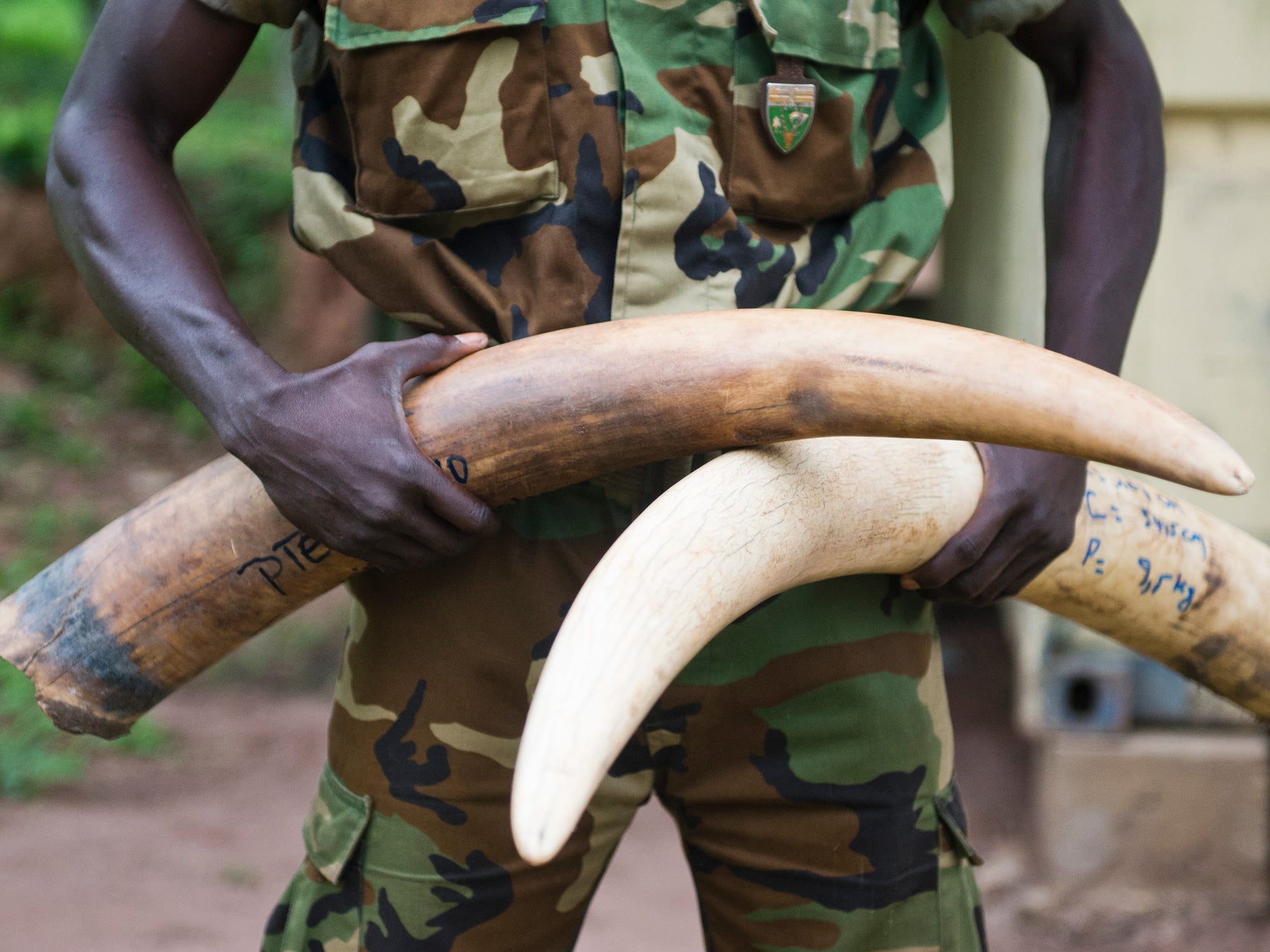Elephant poaching: King’s College London and Metropolitan Police develop fingerprint test for ivory to identify poachers
The new technique uses an advanced form of fingerprinting powder and prepares the ground for the use of fingerprinting in the field

Your support helps us to tell the story
From reproductive rights to climate change to Big Tech, The Independent is on the ground when the story is developing. Whether it's investigating the financials of Elon Musk's pro-Trump PAC or producing our latest documentary, 'The A Word', which shines a light on the American women fighting for reproductive rights, we know how important it is to parse out the facts from the messaging.
At such a critical moment in US history, we need reporters on the ground. Your donation allows us to keep sending journalists to speak to both sides of the story.
The Independent is trusted by Americans across the entire political spectrum. And unlike many other quality news outlets, we choose not to lock Americans out of our reporting and analysis with paywalls. We believe quality journalism should be available to everyone, paid for by those who can afford it.
Your support makes all the difference.Police officers may soon be able to identify wildlife poachers by retrieving fingerprints from smuggled ivory, new research has revealed.
Around 50,000 African elephants are thought to be poached each year, but it had been thought almost impossible to retrieve fingerprints from ivory because of its ridges and porous surface, making it difficult for wildlife police to prosecute poachers.
Now a collaboration between academics at King’s College London, University College London and the Metropolitan Police has created a new technique to retrieve fingerprints from the material for the first time,
The new technique, which is documented in the Science & Justice journal, uses an advanced form of fingerprinting powder and prepares the ground for the use of fingerprinting in the field.
The new study tested three new types of powder on elephant tusks loaned by the Metropolitan Police Service’s wildlife unit. It found that powders that are composed of smaller particles allowed scientists to better identify fingerprints.
“This is the first time that fingerprinting on ivory has been thoroughly investigated and a practical solution offered,” said Dr Leon Barron, a lecturer in forensic science at King’s College London.
“The only other study carried out over a decade ago simply showed that fingerprints were unstable and that the clarity of ridge detail was low, making it difficult to make reliable identifications.”
The new powders are most effective when used within seven days after a print was deposited, suggesting the method would work best in the field; however experts found that they were still able to lift some usable prints up to 28 days after they were deposited. The researchers also found that the tests also work for rhino ivory, hippo teeth and sperm whale teeth.
The trade in ivory was banned in 1989 by international agreement, but a black market continues to thrive; with an estimated population of less than half a million animals in the wild, the ongoing African poaching problem is rapidly driving the species towards extinction.
Earlier this year scientists were able to use DNA testing on ivory for the first time to locate the poaching hotspots. They found that most illegally poached ivory can be traced back to just two areas of Africa; Tanzania and nearby parts of Mozambique.
Scientists hope that the new fingerprinting technique will allow wildlife police in both countries to identify poachers more easily, however.
Gary Pugh, the director of forensic services at the Metropolitan Police, said: “The equipment required to put this form of fingerprinting into practice is inexpensive and relatively easy to procure, making it a cost-effective forensic tool to combat wildlife crime.”
Last month, wildlife campaigners welcomed a signal from Xi Jinping, the Chinese President, that the country would ban the commercial trade in ivory in the new few years. The Chinese market drives demand for ivory and a ban there would be a major step towards ending the poaching crisis that is decimating Africa’s elephant herds.
Join our commenting forum
Join thought-provoking conversations, follow other Independent readers and see their replies
Comments